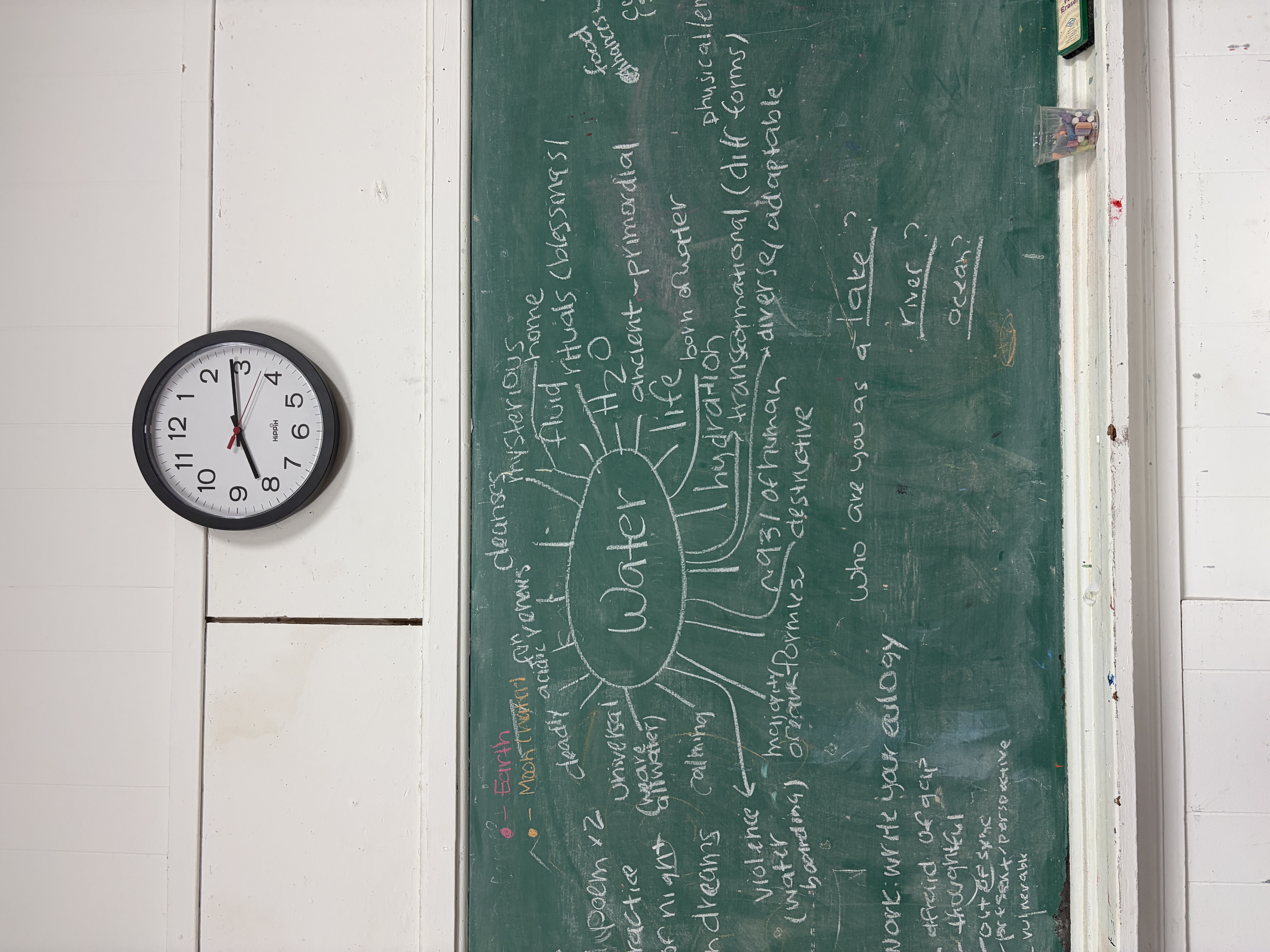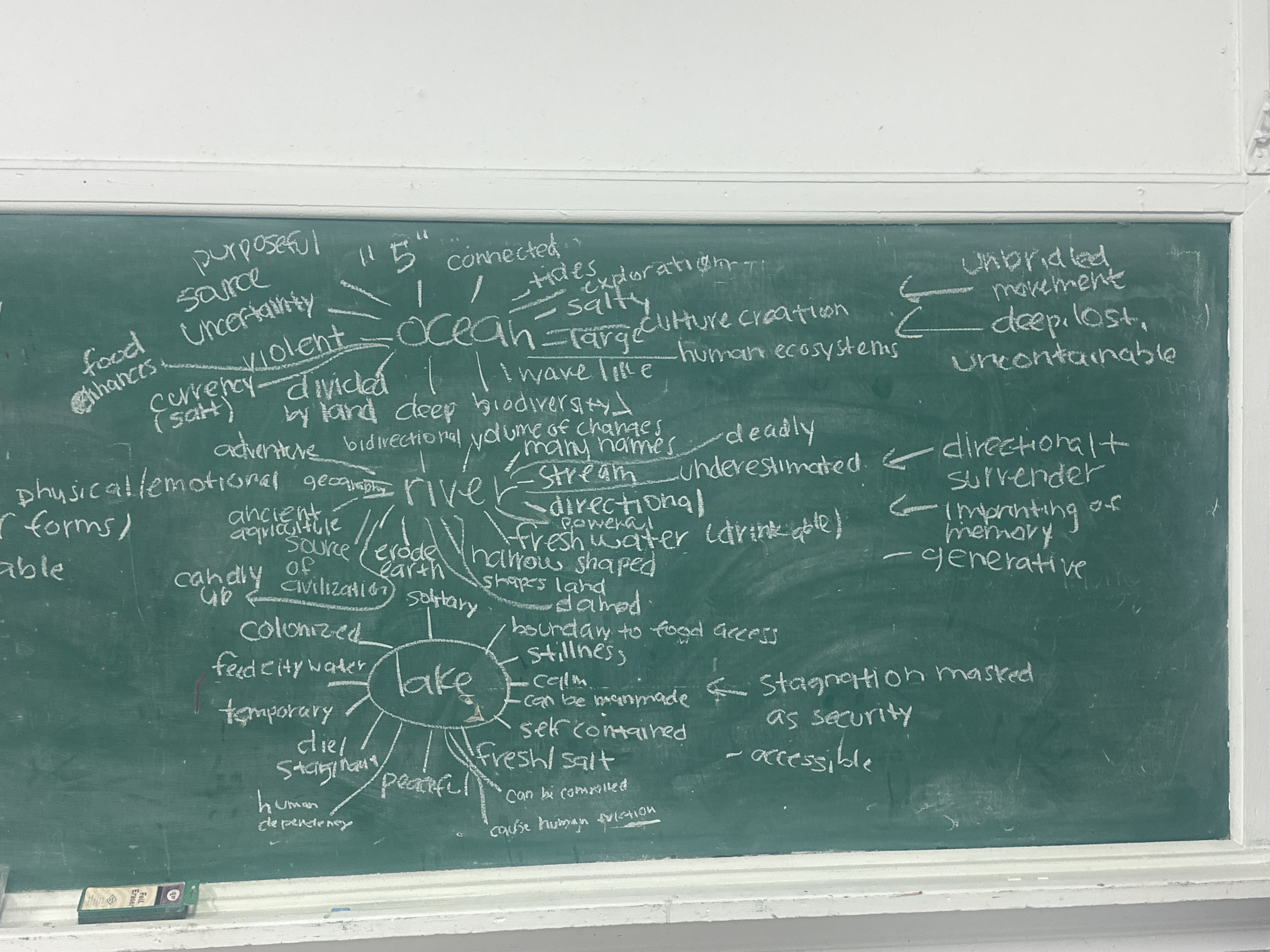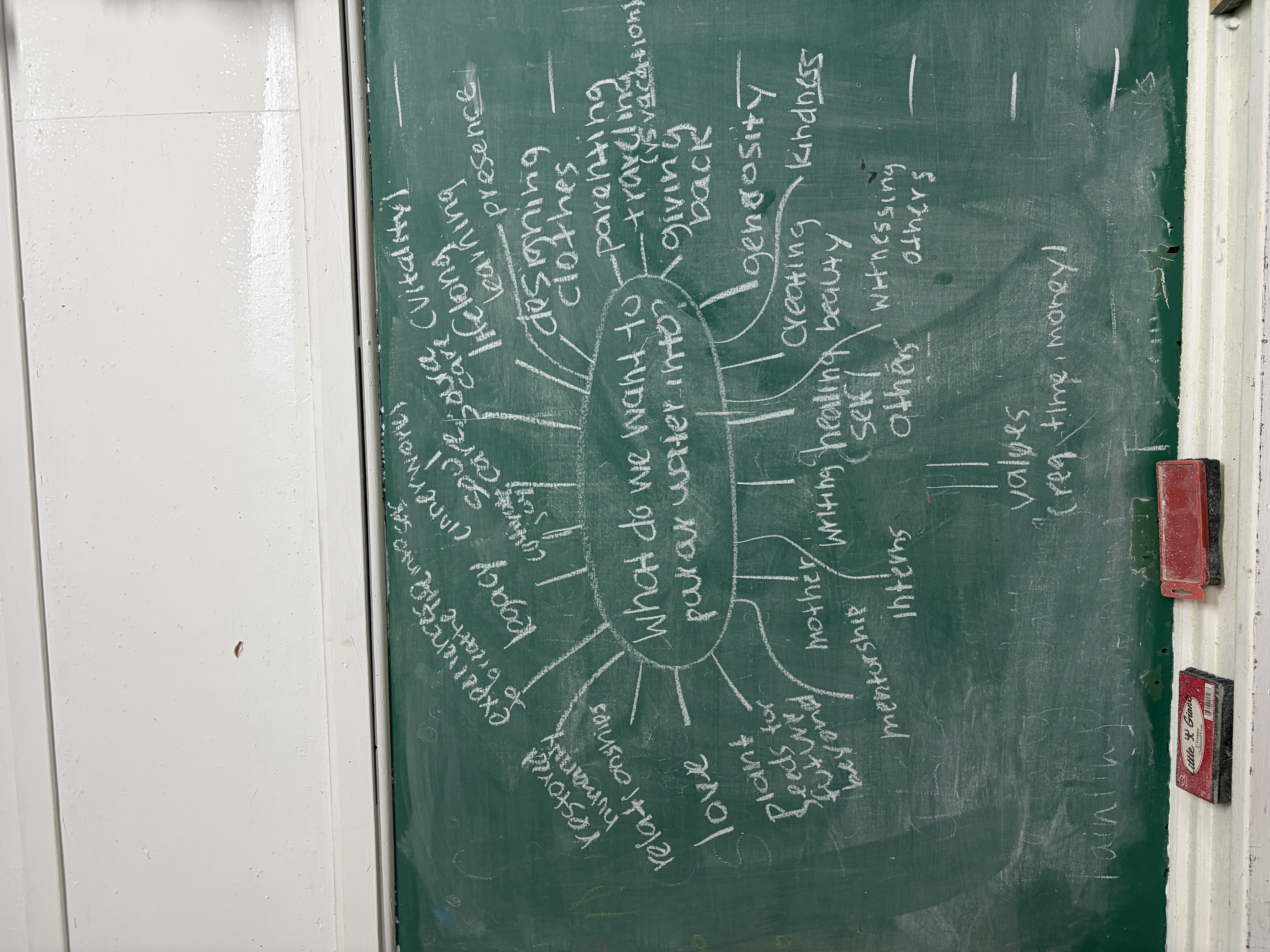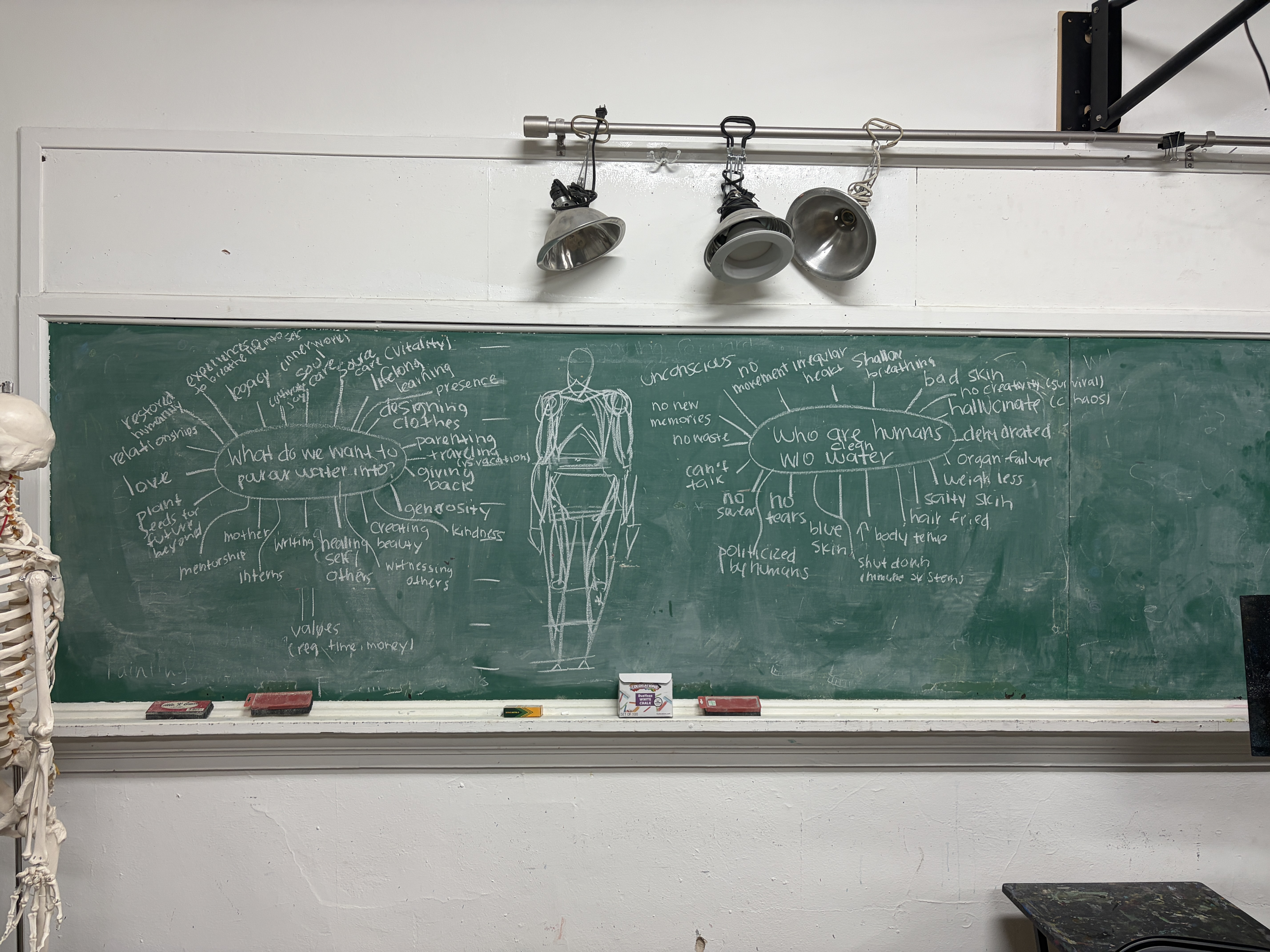What Water Teaches Us About Creative Liberation: Exploring Inner Waves
Nov 13, 2025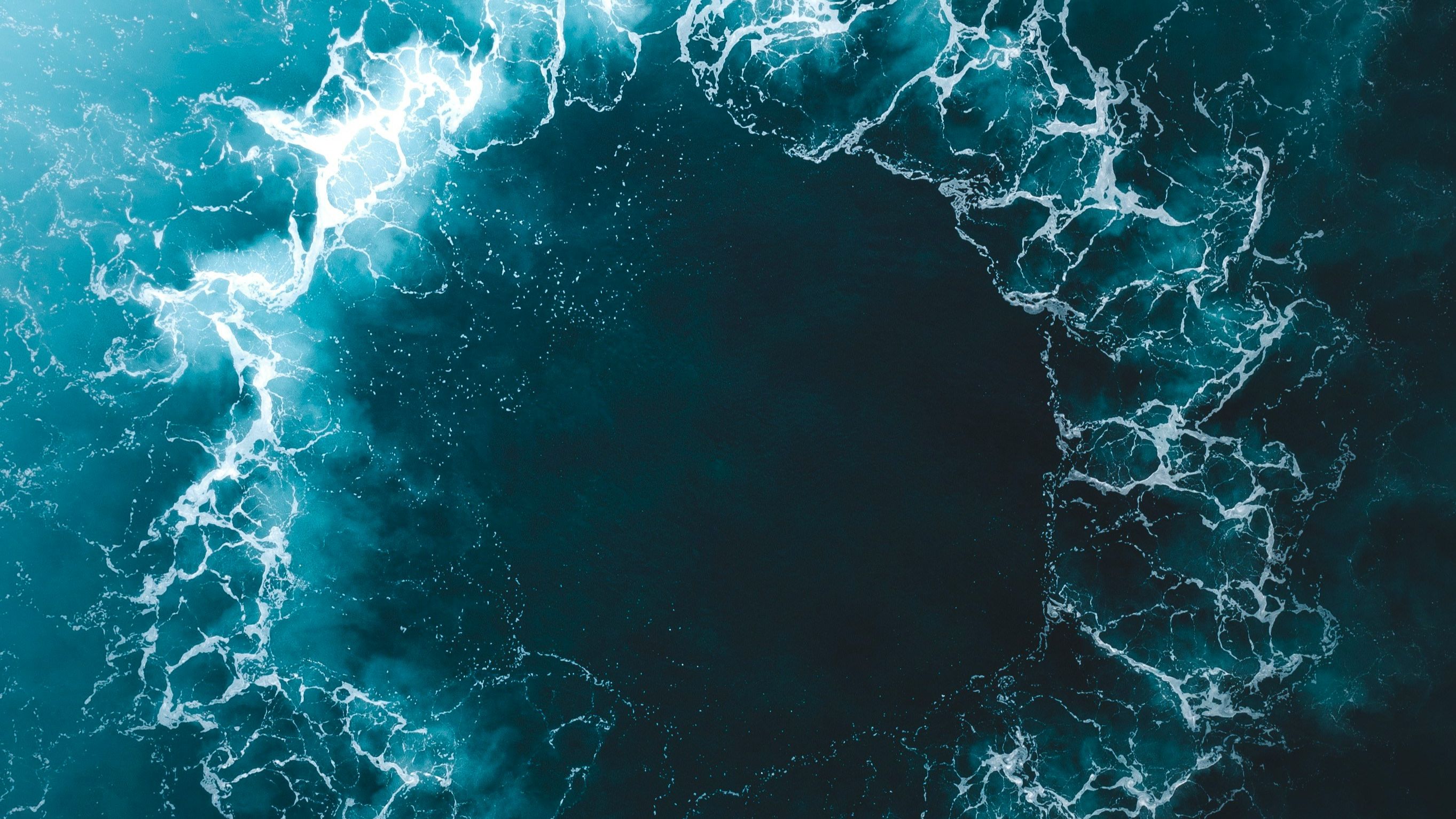
In spite of its function as a reservoir for human darkness—or perhaps because of this—the shadow is the seat of creativity. – Carl Jung
I've taught Creative Liberation at the Creative Arts Center four times in 2025, and each iteration has required me to go deeper.
The first time, I taught Creative Awakening—a response to The Artist's Way, exploring what it means to be expressive and what systems have kept humanity from expressing.
The second time, I explicitly taught through the chakras, asking permission in the room, exploring feminine and masculine energies with a diverse group of eight students.
The third time, I facilitated active deconstruction—using AI to help students map how systems of oppression (colonization, capitalism, white supremacy, patriarchy) interact with their identities.
By the fourth iteration—this one—I had named myself an "embodied liberation guide" in the description. This was the most explicit invitation yet: for people who wanted to use the elements from a liberation perspective.
And I walked into the Water class knowing something would be turbulent.
One student had emailed after the Earth class, saying something I'd written made her feel unsafe. She wanted to talk further on it. I offered two virtual meetings and to arrive early. No response.
I wasn't sure if she'd come to class, was expecting her not to. But she did. An ocean unspoken between us.
So I invited two friends to ground me—one Haitian-American fashion designer, one Panamanian-American aesthetician—not just because they'd already planned to come, but because I intuited: I'll need grounding.
I was on day two of menstruation. The veil was already thin. We'd just had a full moon. And I was teaching water—the element of emotions, the unconscious, and (as it turned out) money.
This is what I learned about holding depth when the waters get rough.
The Ocean Beneath the Ocean—Your Timeless Witness Self
For two hours, I taught water while navigating resistance in the room.
Questions about why we were using "colonial language."
Pushback on externalizing water "as if we're separate from it."
A palpable tension I could feel in my body—the urge to cross my arms, to close off, to defend.
But I didn't collapse. And here's why:
My ocean is the timeless Self within me that witnesses all the other waters.
When I teach lake, river, and ocean as three bodies of water, what I'm really teaching is this:
- Lake = your known self (ego, persona, the reflection you show others)
- River = your evolving self (emotions, narrative, the current that moves you between identities)
- Ocean = your infinite self (soul, mystery, the collective unconscious)
But beneath all three? There's another ocean. The witness. The higher Self that remains stable even when the lake is turbulent, even when the river floods, even when the ocean rages.
That's what I was practicing in that classroom.
While one student questioned my language, my methods, my teachings—while I felt the activation in my body, the impulse to defend—I stayed anchored in the ocean beneath the ocean.
The part of me that could witness the experience without collapsing into it.
I've been a yoga practitioner for 15 years.
When people say "Namaste"—the light and love in me sees the light and love in you—I say: "The darkness and hate in me sees the darkness and hate in you."
Because I've studied psychology thoroughly enough to know that shadow isn't something to transcend.
It's something to befriend. All it takes is gradual exposure for anyone to access what we call "evil."
The question isn't whether you have shadow. It's whether you can navigate it without weaponizing it.
That student's resistance? It was showing me my own shadow.
My fear of not being trusted. My desire to control the process.
My discomfort with being challenged. And instead of collapsing or spiraling, I practiced what I was teaching: Can I hold space for this part of myself reflected in another, without banning it?
Carl Jung taught that creativity comes from the unconscious—from the feelings we're suppressing, the aspects we've rejected, the parts we haven't befriended. If you want to be creatively liberated, you must learn to safely navigate those waters. Not avoid them. Not control them. Navigate them.
And that requires practices that anchor you while you expand.
The Practices That Let You Hold Depth Without Drowning
I didn't walk into that class hoping for smooth waters. I walked in knowing: teaching water means emotions will surface. Teaching the unconscious means shadow will appear.
Teaching liberation means people will resist what they're not ready to see.
And I was ready because of my practices.
Feelings Wheel: We started class identifying 1 feeling we love to feel, 1 we hate to feel, 1 we want to feel more. This wasn't just an exercise for students—it was my grounding. Naming what I was feeling (vulnerable, hypersensitive, anchored) let me witness it without becoming it.
This wasn't the one from class, but it's an example of one:
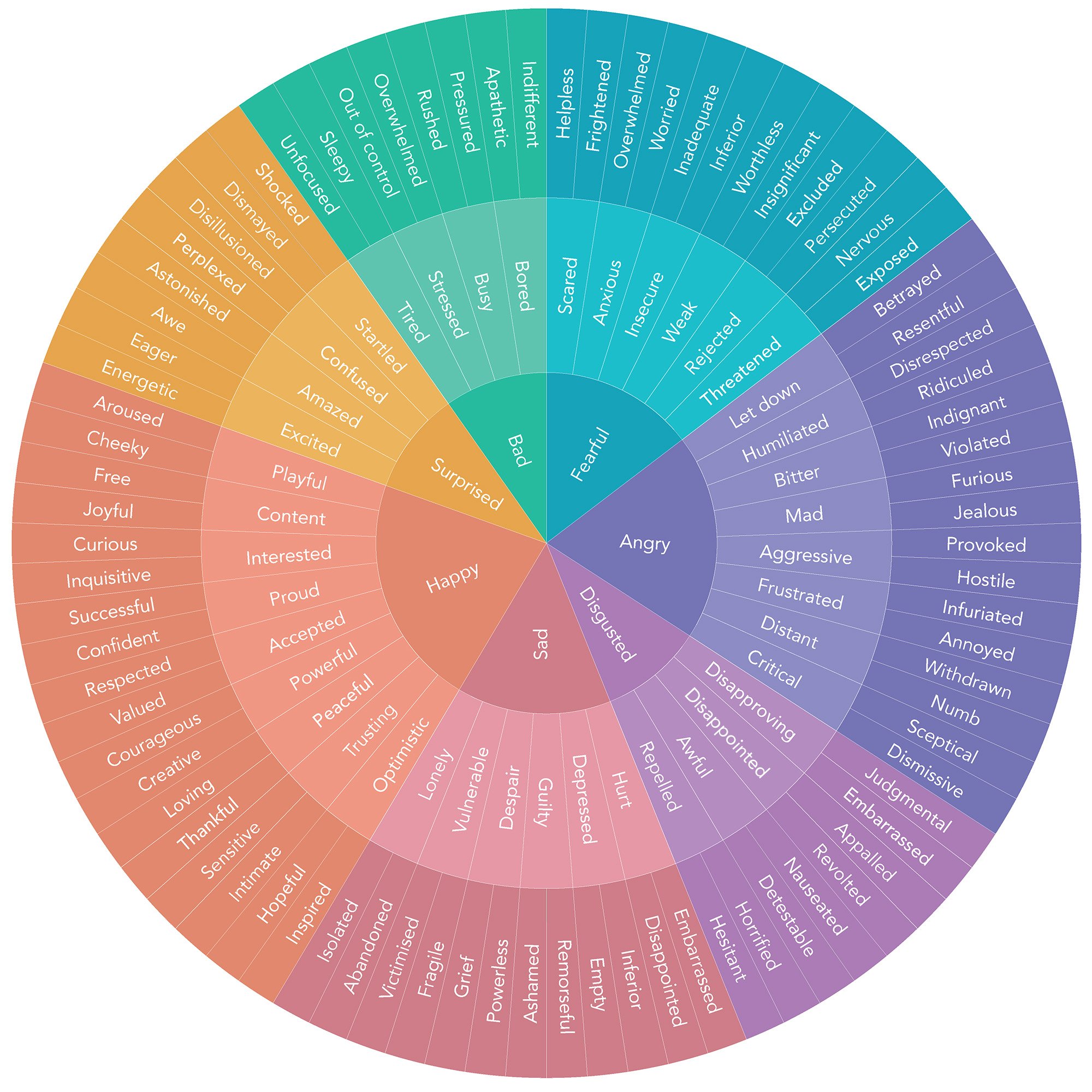
Externalizing before internalizing: We spent time mapping what water IS—how humans need it, what happens without it (no memory, no tears, no emotions). We described ocean, lake, river. Then we asked: which 2 aspects of yourself live in each body of water? The student who pushed back on "externalizing as if we're separate" was right to notice—but she didn't trust that I was leading us back inward. Sometimes you have to externalize to understand before you can integrate.
Trusting the process even when others don't: I didn't know we'd end up talking about money. I didn't plan the eulogy assignment. I didn't design the "what will you pour your water into?" exercise in advance. But I've learned to surrender to the current of the class—to trust that what needs to emerge will emerge. That's the river teaching: you can't control the direction. You can only navigate with intention.
Using every interaction as a mirror: When I brought up the fact that no one had brought up money in this conversation that shows their values, one student argued it wasn't necessary, romanticized third-world countries, said her spiritual work had already impacted people without money—I didn't argue. She didn't want to center money in her eulogy homework, and I offered perspective. Money didn't need to be the center of the letter, but it was important to explore how she felt about it. Because it did facilitate experiences beyond our own time, like the way she wouldn't have been introduced to this class if her friend hadn't invited her.
I wasn't trying to shame her. I was trying to help her see: money is a resource, like water—neutral, neither good nor evil. And learning to receive is also a practice. If a friend had paid for a class I didn't know existed but interested me, I'd be grateful. I'd recognize the circulation, the generosity, the gift.
But she heard shame. And days later, she dropped the class. I apologized for the miscommunication and still thanked her for her presence. I recognize and honor synchronicities, even when they end in separation.
Here's what I learned: When you facilitate depth, you will encounter people's unconscious resistance. Sometimes their shadow will fight your shadow. Sometimes your shadow will resist theirs. Your job is to hold the mirror, to stay steady within yourself, to realize the learning goes both ways. But it is also to hold the depth for those ready to dive—and to not collapse when others can't.
The practices that let me do that:
- Monthly therapy (connecting with all versions of myself for 7 years)
- Holistic coaching (identifying and releasing inner limitations to my dreams)
- Journaling (processing my feelings, desires, discomfort since high school)
- Morning pages (clearing the channel for 1.5 years)
- Daily meditation (sitting with myself for nearly 2 years)
- Cycle tracking and moon rituals (working with cosmic timing, not against it)
- Queen's Day every week (pouring water back into myself for 2 years)
- Chakra-organized days (honoring different energies instead of forcing one since 2025)
These aren't "self-care." They're the architecture that holds my ocean stable while I navigate everyone else's. They're the practices that keep me feeling safe while I explore my own shadows, without colonizing.
What Water Teaches Us About Holding Truth While Others Resist It
Here's the truth I was teaching that activated resistance: Money matters.
Not because it's good or evil, but because we live in a world where it's a resource—and your relationship with it reveals your relationship with power, receiving, and circulation.
At the time of this class, the US government was shut down. It was the longest shutdown in US history.
There was a ballroom being remodeled in the White House while SNAP benefits weren't being paid—while people literally couldn't afford food.
I brought this up not to start a political debate, but to name: money impacts others.
And if you've avoided the conversation about what you'd do WITH resources, you won't know what to do when you have them.
My goal isn't to make everyone desire being rich. My goal is for everyone to have a secure relationship with money. To see it clearly. To know what you'd pour it into if you had more of it. To understand that avoiding the topic doesn't make you more spiritual—it just keeps you disconnected from a tool of embodied liberation.
Despite the resistance this topic brought up, another student said: "I'm glad you brought this up. This is an important conversation." Same conversation, two responses. And both responses are valid.
Here's what water taught me that night:
When you teach depth—when you name truths about systems, resources, shadow, the unconscious—you risk running into someone else's shadow aspect that also exists within yourself.
The question becomes: can you coexist with it in this space?
Sometimes the answer is no. And that's okay.
But it's a powerful skill to hold space for seeing a different part of yourself in somebody else and not collapsing, not banning it from yourself.
Because the truth you have to share is more important than the discomfort you feel when you're challenged.
I needed that student's resistance. She challenged me to articulate why language matters while also holding paradox. She pushed me to give her liberty—"you can write this eulogy without money if you wish"—while also holding my truth. She reminded me that I can stay anchored in my higher Self (my ocean beneath the ocean) even when someone's lake is turbulent, even when their river resists the current I'm offering.
And when she dropped the class, I didn't collapse. I witnessed my own turbulence. I learned.
I thanked the experience for what it taught me, what it's teaching me.
Because this is the work:
Knowing so much of yourself that you willingly put yourself in situations where people might resist what you have to say—because the liberation they might find is worth the turbulence.
Learning practices that anchor you while you expand, so you can be challenged, offer different perspectives, and still stay rooted in a higher self that witnesses.
Understanding that your ocean—your timeless, infinite, collective Self—is always there beneath the turbulence, holding you while you hold space for others.
Water doesn't avoid resistance. It moves around it, through it, with it. And so do we.
Reflection Questions for You:
-
Using the feelings wheel: What are 2 feelings you love to feel? 2 you hate to feel? 2 you want to feel more? What does your relationship with these feelings tell you about which waters you're avoiding?
-
When you think of yourself as lake (known self), river (evolving self), and ocean (infinite Self)—which body of water do you spend most of your time in? Where are you avoiding depth because you're afraid of what you'll find?
-
What practices anchor you while you expand? What helps you stay rooted in your witness self (your ocean beneath the ocean) when life gets turbulent?
-
What are you pouring your water (life force, time, energy, resources) into right now? Make a list. Does it align with your actual values? If you were writing your eulogy today, would you be proud of where your water is going?
-
Where have you encountered someone else's shadow that reflected your own? Were you able to hold space for it without collapsing? What would it mean to coexist with that part of yourself instead of banning it?
This was one of the most challenging blogs I've ever written—holding the truth of what happened while protecting everyone involved, naming my own activation while staying in my witness self, teaching what water revealed while still swimming in it.
But that's exactly what water does: it shows you your reflection even while you're submerged in it.
Fire, which we explore next, offers something different. Fire doesn't reflect—it transforms.
It asks: What are you ready to burn? What needs to be released so you can create from ash? If water taught us to navigate depth, fire will teach us what to do with what we find there.


